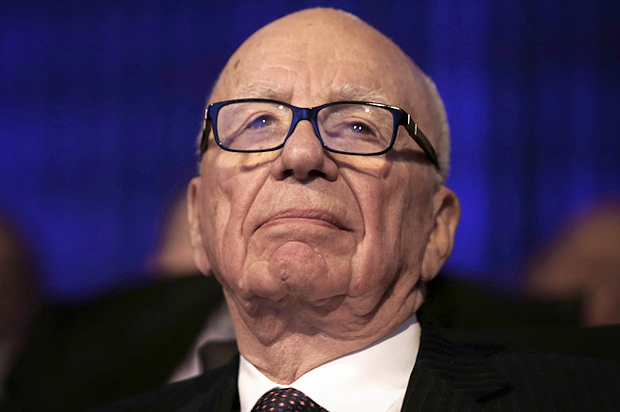It’s been argued many times over, in this space and elsewhere, that the arguments supporting the plaintiffs in King v. Burwell are presented in bad faith. The issue at hand is whether the Affordable Care Act’s health insurance subsidies can legally be paid out through state insurance exchanges that were set up by the federal government. People who support the law say yes, this was always the obvious intention of the law and the understanding of everyone involved in its passage. People who oppose the law say no, that was never the intention or the understanding, and the Obama administration is violating the law by paying those subsidies.
The problem in making that argument is that the people making it – Republicans in Congress, right-wing think tanks, conservative media – all have lengthy paper trails and public records, which makes it possible to go back and compare what they’re saying about ACA subsidies now to what they said three or four years ago, before the King argument was dreamed up. And a number of them are being busted for flagrant inconsistencies: Sen. John Barrasso, Rep. Paul Ryan, the Heritage Foundation, and pretty much every Republican in Congress in 2011. All of them once believed the subsidies were universal, but now that King has a real chance at damaging the ACA they’re all swearing up and down that that was never the case.
I want to carve out a special place of honor, however, for the conservative media actor that has been especially flagrant in its disregard for (easily checked) recent history: the Wall Street Journal editorial board.
The Journal, like pretty much every conservative critic of the Affordable Care Act, spent much of the law’s early years attacking the Obama administration for hiding the law’s true costs and unintended consequences. In July 2011, the Journal editorial board seized on a nationwide survey by the National Federation of Independent Businesses which found that “57% of a cross-section of companies that employ 50 or fewer workers and offer coverage may stop doing so” if their employees opt for subsidized coverage through the exchanges. The subsidies “will be so generous,” the Journal argued, that millions of workers would ditch employer-sponsored coverage, subsidy costs would skyrocket, and private insurance would cease to be:
ObamaCare’s partisans claim none of this will happen because of the social norm theories of behavioral economics. Businesses offer insurance to attract workers, the thinking goes, and it’s the right thing to do. But that assumes utter irrationality—that workers won’t take a cheaper deal when they see it and businesses won’t try to compete against their rivals.
Small businesses are rarely best suited to be health-care providers, lacking large margins and H.R. departments. It’s also true that insurance tied to jobs is inefficient and too expensive. But the solution isn’t adding millions of middle-class workers and trillions of dollars in new costs to the government books while destroying private coverage, even if it increasingly looks like that’s what ObamaCare is poised to do.
The only way this criticism makes any sense is if the Journal assumed – as everyone else did at the time – that subsidies would be offered everywhere. If it had been their understanding that certain states would not be eligible for subsidies, it seems like they would have mentioned it, or argued that states should exercise their option to forgo subsidies to prevent this from happening. But no: they defaulted to the position that coverage would be subsidized everywhere.
Now let’s jump ahead to March 2014, when the DC Circuit Court agreed to hear Halbig v. Sebelius, in which the plaintiffs make a similar argument to King. The Journal heartily threw in with the plaintiffs, declaring it an unquestioned fact that Democrats had written the law to deliberately withhold subsidies from uncooperative states:
This was no accident. The federal government cannot commandeer the sovereign states under the Constitution, so Democrats created an incentive for Governors to participate voluntarily. If they didn’t cooperate by taking the quid of the exchanges, they would deny their constituents the quo of eligibility to claim billions of dollars worth of benefits.
Four months later, in an editorial on Gruber-grate, the Wall Street Journal went a step further, arguing that the plaintiff’s case in King and Halbig was “conventional liberal wisdom” at the time of the law’s passage, and that liberals were trying to rewrite history by denying it:
Liberals feared some states wouldn’t set up exchanges, so they deliberately wrote incentives into the law so the states would do so. This was the conventional liberal wisdom until this year when it suddenly became legally and politically inconvenient for the Administration to admit it.
That brings us to December 14, 2014, and the Wall Street Journal’s editorial counseling the Republican Party to find a way to deal with the “immediate refugee crisis” that would happen in the health insurance market should the Supreme Court rule against the government. “Of the 5.4 million consumers on federal exchanges, some 87% drew subsidies in 2014, according to a Rand Corporation analysis,” they observed.
That advice, while prudent, represents the culmination of a wild arc of bullshit embarked upon by one of the most influential conservative media establishments. They started with the correct assumption that every state would be subsidized, moved on to the contrived position that some states were never going to be subsidized, sank down to the galling accusation that someone else was lying about the subsidies out of political expediency, and ended up urging the GOP to mitigate the terrible fallout of the garbage argument they’d lately endorsed.

